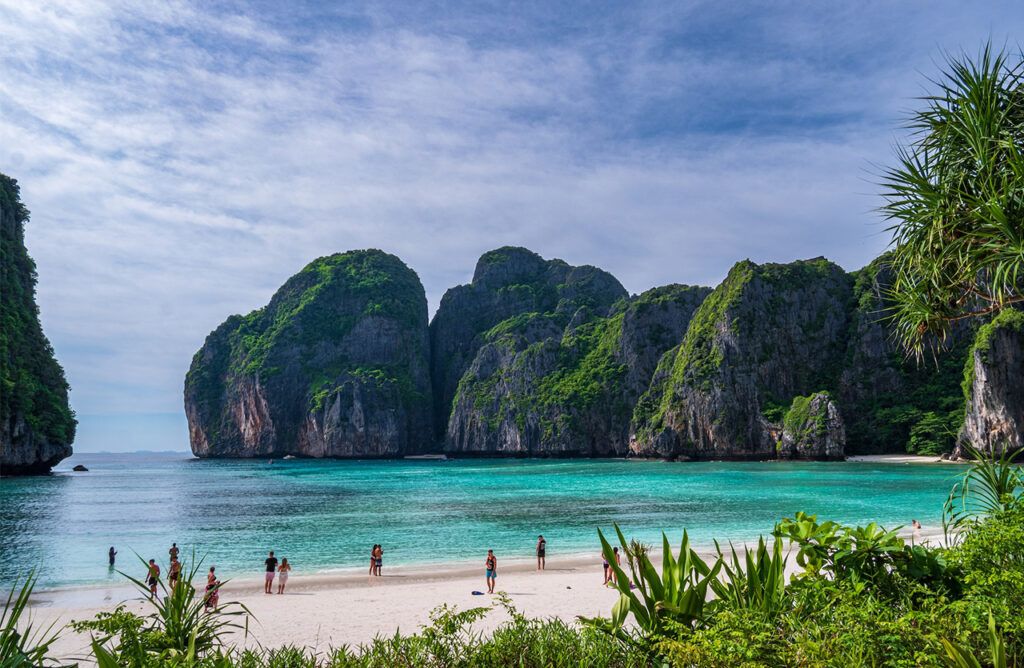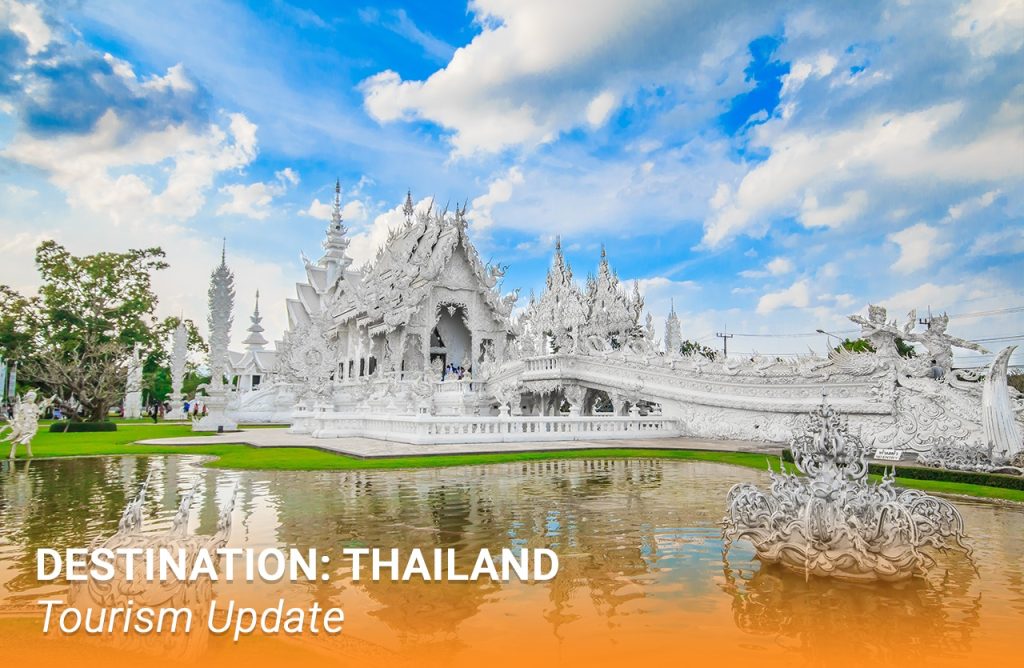
Thailand National Park authorities have confirmed that Maya Bay – one of Thailand’s most iconic tourism destinations – will close from 1 August to 1 October 2023. The bay, which was made famous by the film The Beach in 2000, has previously been shuttered several times to protect the local ecosystem from damage related to over tourism.
Maya Bay has traditionally been the jewel in the crown of the Phi Phi islands. This tropical archipelago is made up of four islands: Koh Phi Phi Le, which is a national park comprising Pi Leh Bay, Loh Sama Bay and Maya Bay; Koh Phi Phi Don, home to most of the hotels and bars; Bamboo Island; and Mosquito Island.
Among each of these locations, Maya Bay is by far the most famous. And it is this notoriety that has been the cause of all the trouble in recent years. Following the box office success of The Beach, directed by Danny Boyle and starring Leonardo DiCaprio, a tidal wave of backpackers and holidaymakers descended on Maya Bay, in search of their own slice of picture-perfect paradise. At the height of its popularity, the tiny beach was attracting 8,000 visitors per day.
Maya Bay was not prepared for this sudden influx of tourism, and the environment suffered as a result. Corals around the bay were damaged by boats mooring in the shallows, while the beach itself was swamped in travellers and the trash they left behind. Local animal life on land and sea were pushed to the brink by the crowds, and authorities new that drastic action would be needed if they were to save the bay.
in 2018, the Thai government decided to close Maya Bay to tourism. Working in collaboration with the Ministry of Natural Resources and Environment and members of the private sector, a team of marine scientists began working on a large-scale restoration project. This also involved planning for when and how tourists could return safely and sustainably to Maya Bay.
The bay finally reopened in September 2022. To avoid overcrowding, visitor numbers were carefully monitored, mooring was prohibited and boat trips regulated. Anti-littering and non-smoking protocols were enforced to ensure visitors did not damage the environment. Another key part of this protection was a two-month ‘fallow’ period, to be observed every year, when tourists are once again kept out of Maya Bay and the ecosystem can take a breather.
That time is now. For the next two months, Maya Bay will be closed to the public. This will give nature the time and space to recover, and officials the opportunity to study the continuing impact of tourism on one of Thailand’s most beautiful – and most fragile – attractions. For those visiting Thailand in August and September, there are still plenty of stunning beaches and islands to choose from. Just remember to tread lightly.





